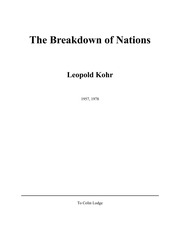Toby, Lewis himself abridged That Hideous Strength for the Avon books paperback that was published as The Tortured Planet (I don't know who devised the title). He says in it that he prefers the longer version but some readers might think the shorter an improvement. Myself, I could wish he had produced a third version, a longer one that would have followed up some on elements either with further material in the text of the story or (delectable thought) with Tolkienian-like appendices.
For example, what was Grace Ironwood's earlier story? I'll confess here that I have begun, and puttered with, a prequel to That Hideous Strength, which would have revealed the origins of the NICE in a secret Office of Coördinated Experiments, created shortly before, or during, the Second World War, and which pursued certain lines of research that would have been alarming to the British public but which was held to be justified by the desperate situation occurring, or liable to occur, thanks to Nazi Germany. Grace Ironwood was involved, persisted despite great self-reproach, perhaps eventually tried to blow the whistle, etc. Arthur and Camilla, the other young couple in THS, would be wartime teenagers, probably, at least in one youngster's case, an orphan, perhaps bother are orphans. The reader would be led into the story, however, by a character not invented by Lewis, a solo black marketeer making a precarious living selling foodstuffs in short supply during wartime rationing -- the story begins with him driving away in a hurry when he thinks someone is tipping off the police about the pork he has in the boot of his shabby car and that he needs to sell very soon before it spoils. The story (novella? short novel?) might end with the deliverance of some mentally handicapped people who were being used as test subjects by the OCE, and the earlier history of Lewis's St. Anne's household. I don't imagine anything I would write along these lines would be first-rate, but it might at least please some people as fan fiction.
But as for the "extended version" of Lewis's own novel that I would like him to have read -- well, you can see some of the other matters, along with Miss Ironwood, that intrigue me. The St. Anne's household fascinates me, notably its developing or realized self-sufficiency. I wonder about how much Lewis might have been interested in and informed about such things. He does not seem to me to be naïve about the topic. For example, he knows that pigs are the outstanding choice for large animals. He pictures every able-bodied person of the household, i.e. everyone except Ransom, as working the soil or doing household chores. I suspect he asked Alan Griffiths (later Dom Bede) about such things, which Griffiths knew about because he and two friends had undergone an "experiment in common life" some years before Lewis wrote the novel -- though they were not self-sufficient and so Lewis may well have learned more by reading about the topic. Lewis also knows that having a bit of money to get things started helps -- remember that Ransom inherited some money from a sister who died. But also, I suspect that semi-self-sufficiency was a living tradition into Lewis's lifetime, in English villages.
Lewis could have written "legends" of Bragdon Wood. The bits of pastiche prose in the exiting novel, by the way, are, for me, exquisite reading pleasures. Lewis was extremely good at that sort of thing, with his sensitivity to language and his superb memory. In one or two of his scholarly books, he deliberately wrote his translations -- of ancient sources used by later authors -- not in 20th-century English but in language contemporary to the author, to avoid making (say) Plato sound modern while Sir Thomas Browne (say) was quoted as he wrote. Something like that. Lewis and M. R. James were very good at that sort of thing.
The whole Logres vs. Britain thing is fascinating and was, I'm confident, something more than an ad hoc improvisation for a fantasy novel. For one thing, he wrote a little-known essay about France (in French) relating to the idea of a sort of national spirit.
Which reminds me of Tim Powers's Declare, with its unforgettable "angels of the nations" idea, seen specifically with regard to Russia, as I recall -- but a very much fallen "angel" there. (My bit of fanfic proposed above might have included a few allusions to Powers's novel.)
And so much more! It's Lewis's kitchen sink novel, as in "everything but the" -- Lewis loaded it with things of interest to him, but it doesn't seem like a hodgepodge but rather a poetic unity.
 www.sffchronicles.com
www.sffchronicles.com
 www.sffchronicles.com
www.sffchronicles.com



